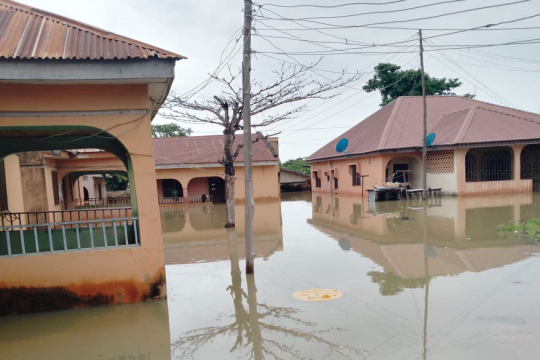Research evidence has shown an increasing spate in climate change-related losses despite the reduction in greenhouse gas emissions, and the adaptation of different coping strategies by Nigerian farmers.
Extreme climate conditions, especially floods, are responsible for losses and damages suffered by farmers in Nigerian riverine communities.
Although flooding is a common experience for farmers, the country experienced extreme flooding in 2012, 2015, and 2022. The Nigerian National Emergency Management Agency (NEMA) report indicated that over 600 people lost their lives and over 2 million persons were displaced due to a flooding disaster in 2022.
Farmers suffer losses
A study conducted by a team of researchers, majorly from EfD Nigeria, indicated that farm households in flood-ravaged communities in Southern Nigeria also suffered crop and livestock losses, high cost of foods, loss of community infrastructure, and waterborne diseases due to contamination of their streams by the flooding of 2012.
The study, titled Assessing climate change-related losses and damages and adaptation constraints to address them: Evidence from flood-prone riverine communities in Southern Nigeria stated that poor management of previous flooding disasters has predisposed vulnerable households to more losses in subsequent flooding disasters.
Adaptation strategies were insufficient
The study stated that the farmers were victims of the flooding even though they had taken some adaptation measures, including improved crop varieties, income diversification, and use of chemical fertilizer and pesticide.
"We observed however that very few of the households engaged in adaptation strategies related to water and pest and diseases management," Dr. Ebele Amaechina, the co-investigator of the study said.
According to the study, the losses suffered by the farmers would have been minimized if they had received adequate government support and more information on climate change adaptation measures.
It recommends an overhauling of the Nigerian disaster management system to make it more responsive to the people at the local level. This would entail establishing and implementing a flood management policy that would guide the provision of necessary flood preventive infrastructure in flood-prone areas.
The study also suggests the implementation of national policies on health insurance, flood insurance, adaptive safety nets, and contingent finance to reduce losses and damages resulting from flooding.
By: Inya Agha Egwu
